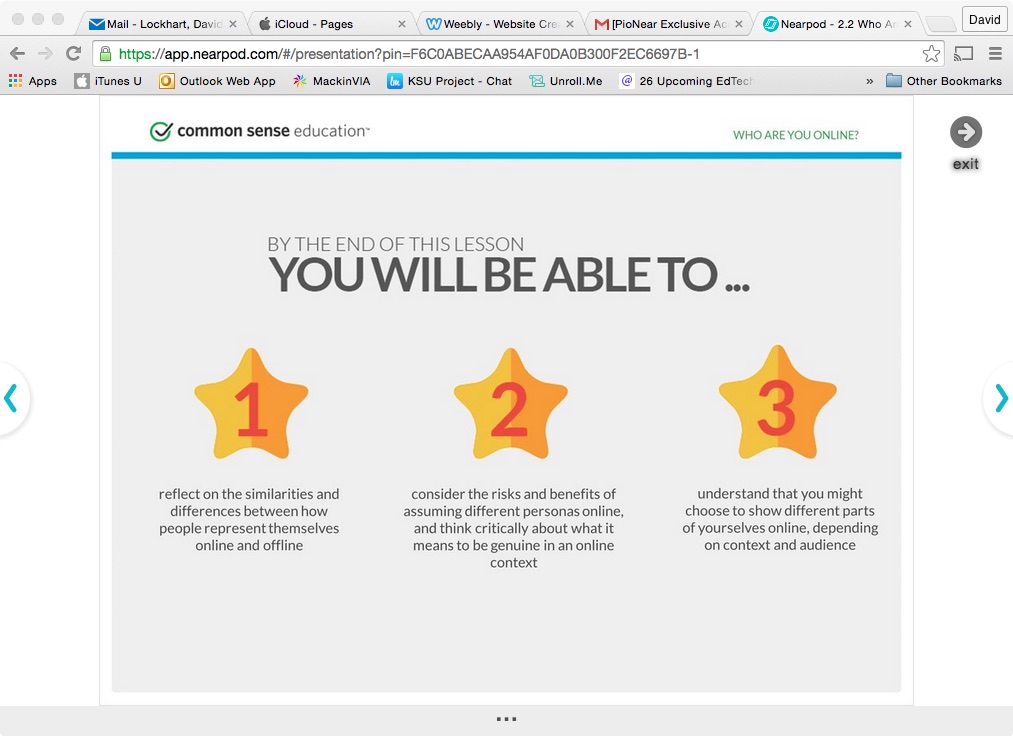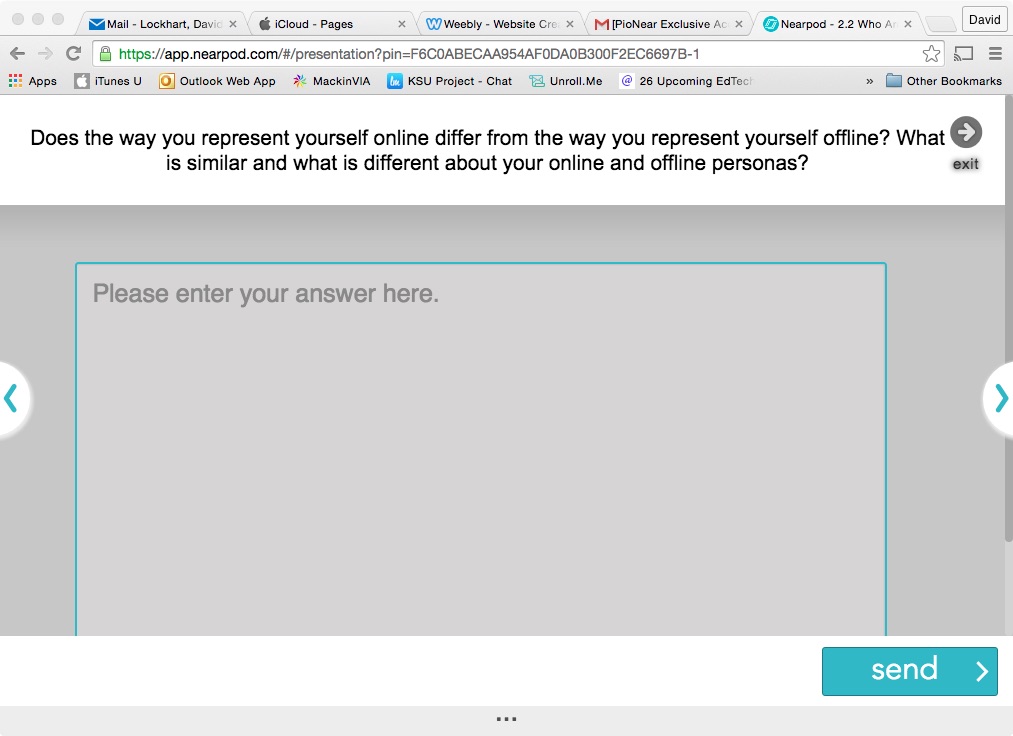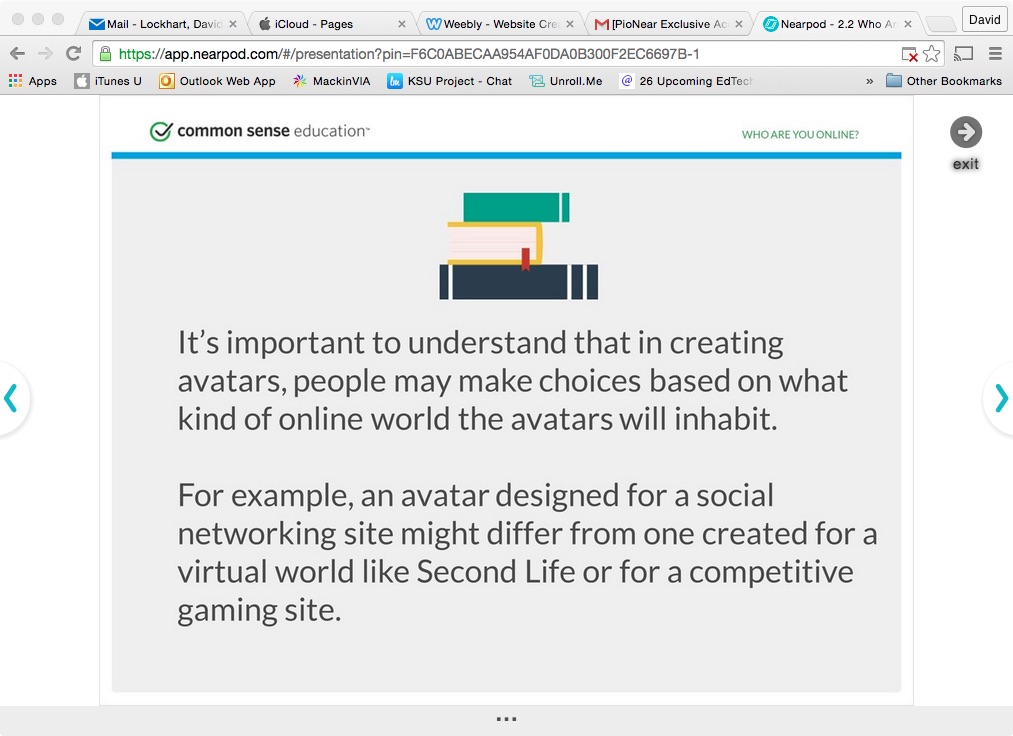|
Good partnerships always start with both sides coming together for a common good.. This is for the sure the case with the new partnership between Common Sense Media and Nearpod. Nearpod needs continued exposure, especially as new competitors come on the market, so why not partner up with one of the new leaders in Digital Innovation and Citizenship. Common Sense was in need of a great way to make their lessons interactive and easier to present, so why not partner up with Nearpod. Now you can do all of Common Sense Media's digital citizenship lessons through Nearpod!
I have to say this might be my FAVORITE new thing to come out of ISTE. Both of these tools, are wonderful, and combining them makes DIgital Citizenship training in schools SO EASY. Obviously, both are great tools on their own to, but if you looking for a blog about that we can do that another day. Where this partnership really excels, is it makes the lessons even more interactive. Students can now watch the videos at their own pace. They can answer questions in Nearpod and the teacher can both keep the answer and share it out to the other students to help spark discussion. Really, this makes digital citizenship mean so much more for kids! Now is it going to be free to everyone? No, your school must have a school account. With this partnership though, you now have another reason in your arsenal on why you should get Nearpod in your building. Screenshots of one of the High School Lessons!
0 Comments
You know what gets me about Education? It's that we are a profession of extremes. Every time a change is made we take it to an absolute extreme. Every time there is a concern or complaint it's taken to the extreme. Why can't we find a middle ground? I wonder if our current political landscape of extremes is bleeding into the education sphere a bit.
I honestly started thinking about this after I saw some attacks on two of my favorite ed tech companies Remind and Class Dojo. Basically, I don't remember where I saw it, but it revolved around a concern with student privacy and student data. Folks are concerned both of these companies sell student data, and frankly I think that is an extreme view. Both of these companies have it written in their policies that they don't sell student data. Even if they did (which they don't), you could set most of this up where the company actually gets very little student data. Dojo could be done without any student data, while the only thing Remind has is a phone number. Really, it also all comes down to the principal of "What are we really teaching our kids about online safety by preventing tools like these?" I would much rather my own children learn and grow through online avenues that are safe then ones that are not. It also means that if this is a huge concern we should be targeting Google first since they are the ones who add advertisement based on the places we visit, Another example of our school extremes culture is the constantly shifting theory and resources of districts, states, and even the federal government. As a teacher, our professional learning has become find what you need on your own and try to make the newest theory or initiative fit in with it. With educators and schools constantly being attacked, it means the newest greatest theory or initiative is always just around the corner. For teachers, that means if we don't like the theory we can just wait it out, and it becomes just another hoop we jump through. Why can't schools stay with something and let it play out? Why can't we personalize learning and theories to a teachers strengths? There are many other examples of this culture of extremes. Obviously, our testing culture for sure fits this category to. Really, if you trace it back to its roots it goes hand in hand with our political climate of extremes, and that leads into the biggest problem with American schools.....the constant legislative meddling.. |
Archives
January 2023
Categories |






 RSS Feed
RSS Feed
